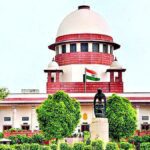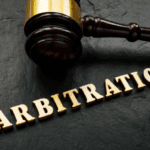The Kerala High Court dismissed a petition filed on behalf of Reporter TV on Tuesday that contested the order of a Sessions Court requiring the news network to produce the news articles, including discussions and interviews, that were broadcast by it from December 25, 2021, to October 21, 2022, in connection with the 2017 Actor Assault case. The instruction was given in response to a petition asking the High Court to be referred in order to begin contempt proceedings against the petitioners for allegedly broadcasting trial facts. The case from 2017 concerns the alleged kidnapping and sexual assault of an actor in a moving automobile.
Facts –
On the petition submitted by the second respondent, Malayalam star Dileep, who is also the eighth accused in the crime, the Sessions Court had issued an order dated March 19, 2020, regarding information about the case, including scandalous and hateful allegations, purportedly being broadcast in the media. No one was allowed to print or publish the trial’s proceedings, with the exception of the topics covered in Nipun Saxena and Anr v. Union of India & Ors. (2019).
Actor Dileep then filed a second petition, this time asking the High Court to be referred under Section 15(2) of the Act in order to begin contempt proceedings against the petitioners. He claimed that starting on December 25, 2021, Reporter TV had broadcast false, fabricated, and misleading information about the trial in an effort to harm the court “in an orchestrated attempt to derail the trial of the case.” The program’s material, which was shown on December 25, 2021, was likewise created to demonstrate the same.
It was argued that the programme was produced knowing that the Sessions case would be heard behind closed doors. Furthermore, it was claimed that the petitioners were holding a separate trial via the TV channel. The petitioners refuted this, claiming that the restriction only applied to reporting transactions that take place inside the courtroom and are necessary for the investigation and trial, and that when people come forward to disclose information, it cannot be said that they are being disrespectful.
While the above petition was being considered, the actor filed a different petition asking to accept a pen drive as proof of various channel discussions and interviews the petitioners had conducted over a number of days. The petitioners objected to this request on the grounds that the pen drive only contained excerpts from interviews and short clips of conversations that could not accurately portray the context in which those conversations were broadcast. The Sessions Judge issued the contested order asking the petitioners to furnish the interviews and channel discussions that they broadcast between December 25, 2021, and October 21, 2022, in this context. The same has been disputed by the petitioners in the current petition.
Issues –
- Whether further contempt action can be initiated once FIRs have already been registered
- Whether producing the evidence would violate the right against self-incrimination of the petitioners under Article 20(3)
- Locus Standi of the second respondent Actor Dileep
Judgment and Analysis –
The petitioners’ counsels argued that the provison to Section 10 of the Contempt of Courts Act prohibits the court from bringing up the same subject as contempt of court while there are active criminal prosecutions. It was claimed that the petitioners were being forced by the Sessions Court to disclose evidence that may be used against them in violation of Article 20(3). It was further argued that the second respondent lacked locus standi because he was a third party and could not be sued for enforcement of any rights. Furthermore, it was argued that although the Sessions Court had ordered the production of materials broadcast up until October 21, 2022, which was in excess of what had been requested, the 2nd respondent had only asked for matters telecast from December 25, 2021, to April 5, 2022.
On the other hand, the respondent’s attorneys contended that because the impugned order was simply a preliminary step in the investigation, it could not be overturned under Article 227 of the Constitution. According to several Apex Court rulings in this respect, it was argued that the proviso to Section 10 would not apply and that filing a FIR would not prevent the start of contempt of court proceedings. Additionally, it was asserted that Article 20(3) would not be applicable during criminal proceedings, particularly when gathering information to present it to the court, and that the petitioners’ objections to the pen-drive produced were the only reason the court ordered the production of the materials. The petition was dismissed after discussing the following issues –
Issue 1 –
The court took notice of the fact that five FIRs had already been filed against the petitioners, alleging that they had held discussions and broadcast them online and on Reporter TV without the Sessions Court’s consent in an effort to disclose trial information.
The Court next read Section 10 of the Contempt of Courts Act, which outlines the High Court’s authority to impose sanctions for contempt of inferior courts. In the event that the accused act of contempt constitutes a crime punishable by the Indian Penal Code, the proviso stipulates that no High Court shall take notice of the alleged offence in relation to a court below it.
The Court determined that the petitioners’ argument that after FIRs had been filed, a further contempt action could not be brought could not be allowed since it would contradict the basic intent of the law. Referring to the case of State of M.P. v. Revashankar (1959) and Daroga Singh & Ors. v. B.K.Pandey (2004) in this regard, wherein it was observed that the mere fact that the claimed acts of contempt also fit the characteristics of other crimes under the criminal code would not disqualify them from falling under the purview of the contempt jurisdiction.
The Court noted that even though the petitioners were being prosecuted under Section 228A of the IPC, which makes it illegal to print or publish the victim’s name or any other information that reveals their identity during a rape trial without the victim’s consent, that act would not be sufficient to trigger Section 10 of the Act.
Issue 2 –
The Court noted that in order for Article 20(3) of the Constitution to be satisfied, the following conditions must be met: A) the person must be charged with a crime; B) he must be compelled to testify; and C) the compulsion must require him to testify against himself.
The Court made the observation that it would be crucial for the Court to discover specifics of the information published or televised when claims are made concerning disclosing details of a trial or an in-camera procedure. The Court stated that the petitioners, who are not an accused party in the case, could not assert the protection of the doctrine of self-incrimination in such a situation.
Issue 3 –
The petitioners’ locus standi claim was rejected by the court as having no validity. It was noted that the actor just alerted the Court to a few instances in order to warn it that there had been contempt of Court. The Court further noted that the lower court had merely asked for the provision of any documents purportedly broadcast at that time in order to determine whether or not there had been any insubordination. The Court might request the submission of records related to the broadcast of the claimed contemptuous issue up until October 21, 2022, it was noted, and it could do so at its discretion.




